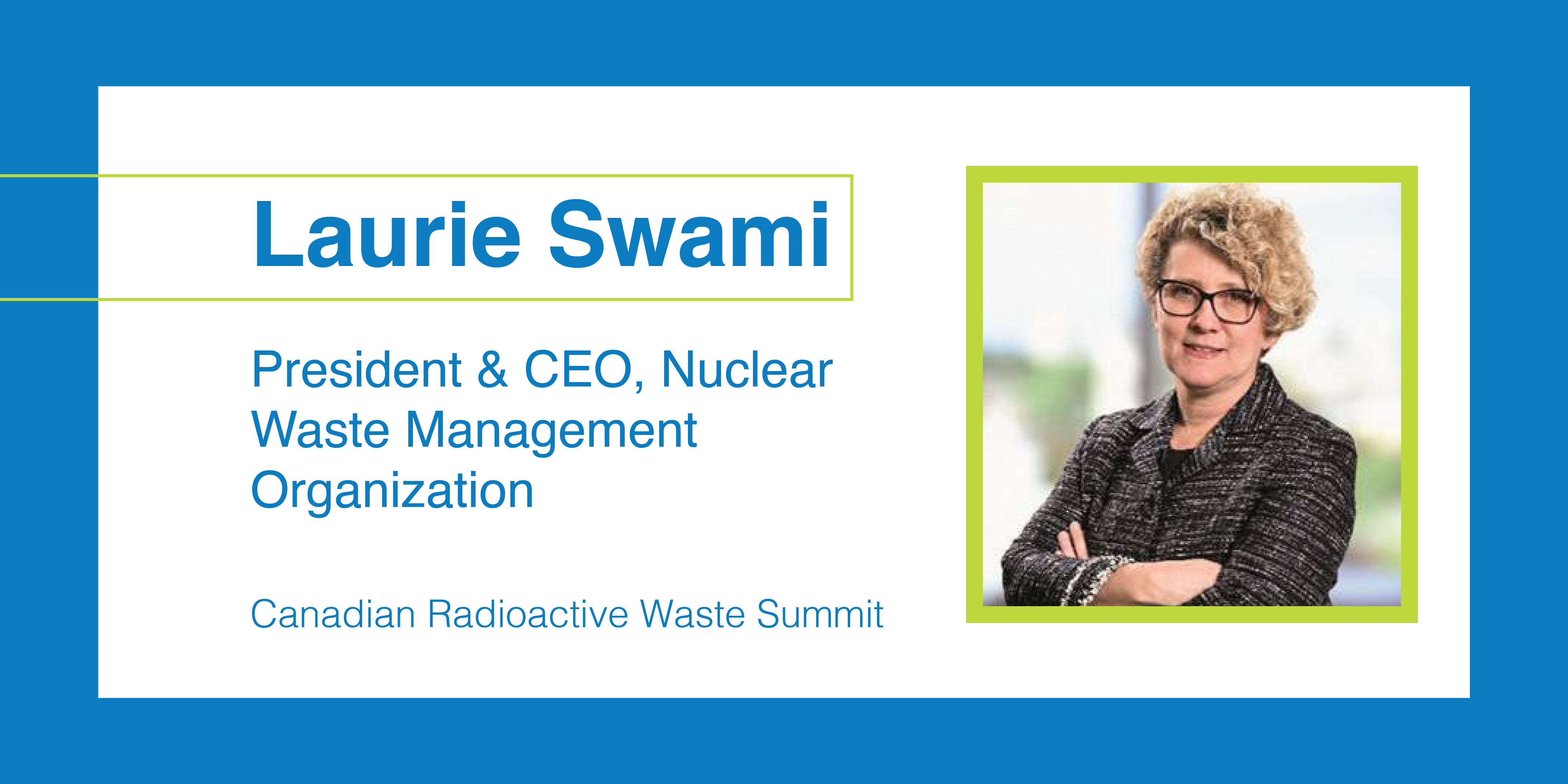Over the past three days, the Nuclear Waste Management Organization (NWMO) gathered Canadians and Indigenous peoples to take a first step in a journey together towards a long-term solution for all of Canada’s radioactive waste.
Representatives from the NWMO joined Indigenous elders and youth, technical experts, municipal representatives, and interested Canadians from across the country at the Canadian Radioactive Waste Summit to share their thoughts about the future of radioactive waste in Canada.
The three-day digital summit is the first official event of a year-long consultation to develop a proposed course of action for the Integrated Strategy for Radioactive Waste Strategy (ISRW) — an initiative the Minister of Natural Resources asked the NWMO to lead late last year. The NWMO is excited to take on this work, which draws on its experience in working with Canadians, Indigenous peoples and technical experts from around the world in implementing Canada’s plan for the safe, long-term storage of used nuclear fuel.
“We are here today to start a conversation, to begin a collaborative process of ensuring we find a safe way to store that waste for the long term,” NWMO President and CEO Laurie Swami said at the start of the Summit. “The fact of the matter is, even if every nuclear generator or research or medical laboratory were closed tomorrow, radioactive waste exists today.”
“While waste is safely stored today, it’s our job, starting today, to come up with a strategy how to safely manage that waste for the long-term,” she said. “And that is why we are here today, to start the process of coming up with a strategy for that waste.”
The ISRW work is running parallel to the NWMO’s implementation of Canada’s plan, which is a long-term solution specifically designed for used nuclear fuel. However, there are over two million cubic meters of low- and intermediate-level waste that are safely stored on an interim basis right now, but which require a long-term solution.
Finding that long-term solution is precisely what the ISRW is all about: working with Canadians and Indigenous peoples to come up with a plan today, so future generations don’t have to. The summit, and the engagement activities that will follow, are part of an open dialogue with no predetermined outcomes. Instead, the process is about listening, coming together and proposing solutions.
In addition to the NWMO’s work on Canada’s plan for used nuclear fuel, there are some other solutions already underway. For example, there is a proposed facility at Chalk River for that facility’s low-level waste, and there are other solutions being implemented for uranium mines and mills waste.
However, as Ms. Swami noted, millions of tonnes of low- and intermediate-level waste still require a long-term solution, and “we can’t leave our children and grandchildren with our waste. It’s the fair thing to do, and it’s the right thing to do.”
To learn more about the ISRW and share your thoughts with the NWMO, participate in future events and learn more, please visit radwasteplanning.ca.

